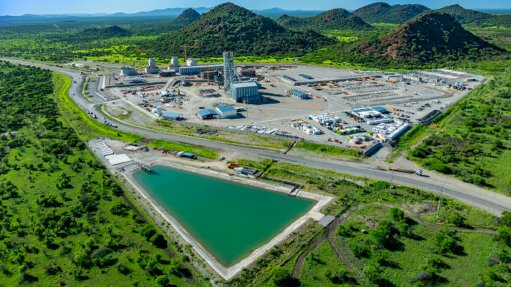Black tax’s longevity benefit
The ‘black tax’ phenomenon is as common in Mzansi as it is elsewhere on the continent. This is where societal values demand that individuals who ‘have arrived’ – nay, who are fortunate enough to have a regular income, mostly through employment – support members of their families. This includes paying school and/or university fees for younger siblings or taking care of desperate, incomeless parents.
While black tax is informed by the imperative to share, incapsulated by the African proverb, izandla ziyagezana (one hand washes the other), it is also about protecting one’s social reputation, as no one wishes to be identified by the entire neighbourhood as that young man or woman who turns a blind eye to siblings who cannot afford to be in school or varsity or family members who are living in abject poverty.
This is why those who ‘pay’ black tax often do so before considering their own interests.
“Yes, it puts pressure on me because it puts a hold on me starting my own life,” one youngster, who was a graduate student at the University of KwaZulu-Natal, told an interviewer recently.
Apart from the obvious benefits, there is one that is not much talked about: sharing resources with family – and others – lowers mortality levels. This is not an old wives’ tale, but an empirically proven reality.
Indeed, a new study that was recently published in the Proceedings of the National Academy of Sciences, in the US, avers that giving money or other resources to one’s children or ageing parents is akin to increasing their life span, noting that “there is a linear relationship between the amount and frequency of wealth transfers and the lengths of individuals’ lives”.
The study notes that France and Japan, which have the lowest mortality risk, boast the highest average individual wealth transfers. Individuals in these two countries share between 68% and 69% of their lifetime income, while their mortality rates are about twice as low as those of their counterparts in China and Turkey, where people share between 44% and 48% of their lifetime earnings.
“South American countries also rank high in terms of generosity, as they share more than 60% of an average individual’s lifetime income,” state the study’s authors.
They note that on the low side of the spectrum are countries including those in sub-Saharan Africa, where people are least able to share portions of their earnings and experience shorter life spans. These fellows are absolutely correct when they say people in our sub-Saharan African neck of the woods experience shorter life spans, but they get the wrong end of the stick when they attribute the shorter life spans to our inability to share. We share what little we have. Stories abound of South African university students who live rough on the country’s campuses, preferring to send portions of their National Student Financial Aid Scheme grants to their parents back home.
But the key finding, that generosity begets longevity, is spot-on. This resonates with a 2010 study conducted by researchers at Brigham Young University, which involved more than 300 000 participants and found that survival was 50% greater for individuals with stronger social relationships, compared with those with lesser or no social bonds.
It’s quite interesting that generosity and life expectancy are two of the six variables that scientists consider when compiling the World Happiness Report, which is released every year by the Sustainable Development Network for the United Nations.
“Generous behaviour is related to trust and mutual regard and a sense of being together,” states John Helliwell, co-editor of the World Happiness Report and professor emeritus of economics at the University of British Columbia.
So, in addition to ensuring that our family members – and others in less fortunate circumstances than us – live longer, our generosity helps to make their lives happier.
Article Enquiry
Email Article
Save Article
Feedback
To advertise email advertising@creamermedia.co.za or click here
Press Office
Announcements
What's On
Subscribe to improve your user experience...
Option 1 (equivalent of R125 a month):
Receive a weekly copy of Creamer Media's Engineering News & Mining Weekly magazine
(print copy for those in South Africa and e-magazine for those outside of South Africa)
Receive daily email newsletters
Access to full search results
Access archive of magazine back copies
Access to Projects in Progress
Access to ONE Research Report of your choice in PDF format
Option 2 (equivalent of R375 a month):
All benefits from Option 1
PLUS
Access to Creamer Media's Research Channel Africa for ALL Research Reports, in PDF format, on various industrial and mining sectors
including Electricity; Water; Energy Transition; Hydrogen; Roads, Rail and Ports; Coal; Gold; Platinum; Battery Metals; etc.
Already a subscriber?
Forgotten your password?
Receive weekly copy of Creamer Media's Engineering News & Mining Weekly magazine (print copy for those in South Africa and e-magazine for those outside of South Africa)
➕
Recieve daily email newsletters
➕
Access to full search results
➕
Access archive of magazine back copies
➕
Access to Projects in Progress
➕
Access to ONE Research Report of your choice in PDF format
RESEARCH CHANNEL AFRICA
R4500 (equivalent of R375 a month)
SUBSCRIBEAll benefits from Option 1
➕
Access to Creamer Media's Research Channel Africa for ALL Research Reports on various industrial and mining sectors, in PDF format, including on:
Electricity
➕
Water
➕
Energy Transition
➕
Hydrogen
➕
Roads, Rail and Ports
➕
Coal
➕
Gold
➕
Platinum
➕
Battery Metals
➕
etc.
Receive all benefits from Option 1 or Option 2 delivered to numerous people at your company
➕
Multiple User names and Passwords for simultaneous log-ins
➕
Intranet integration access to all in your organisation

















